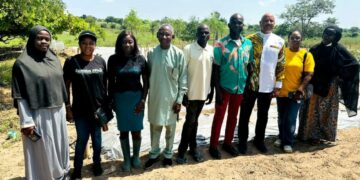In line with his administration’s resolve to boost education, the Zamfara State Governor, Dauda Lawal has approved the recruitment of 500 teachers.
The approval, part of the ongoing reforms in the education sector, is coming on the heels of the completion of a selection exercise conducted by the Zamfara State Committee for Teacher Recruitment and Deployment (TRD).
Governor Lawal established and mandated the TRD committee to oversee the process in line with the existing Teacher Recruitment and Deployment Policy Guidelines (TRDPG).
It was gathered that 11,708 candidates applied through the State’s online recruitment portal out of which 8,184 met the eligibility criteria and were screened. Of this number, 3,105 participated in the Computer-Based Test (CBT).
A statement by the Chairman of the Zamfara State Civil Service Commission/Recruitment Committee, Aliyu Mohammed Tutur said
“Based on the 40% benchmark, 1,033 candidates qualified for the final selection oral interview.
“After thorough evaluation by the subject panelists, 500 candidates were recommended for appointment as teachers across the State. The recruitment targeted core teaching subjects, namely, English Language, Mathematics, Biology, Chemistry, Physics, Computer Studies/ICT, Entrepreneurship, Agricultural Science, Home Economics, and Animal Husbandry”
Tutur said lauded Governor Lawal, for his steadfast dedication and purposeful commitment to revitalising and transforming the education sector in Zamfara, noting that the recruitment exercise is a clear demonstration of the Governor’s resolve to bridge the gap in qualified teaching personnel and enhance the overall quality of education in public schools.
He described the exercise as transparent, merit-based, and fully aligned with the administration’s reform agenda aimed at restoring professionalism and efficiency in the State Civil Service.
While assuring that the newly recruited teachers will soon receive their appointment letters ahead of their deployment, Tutur assured that particular focus would be on rural and hard-to-reach communities to promote equitable access to education.





